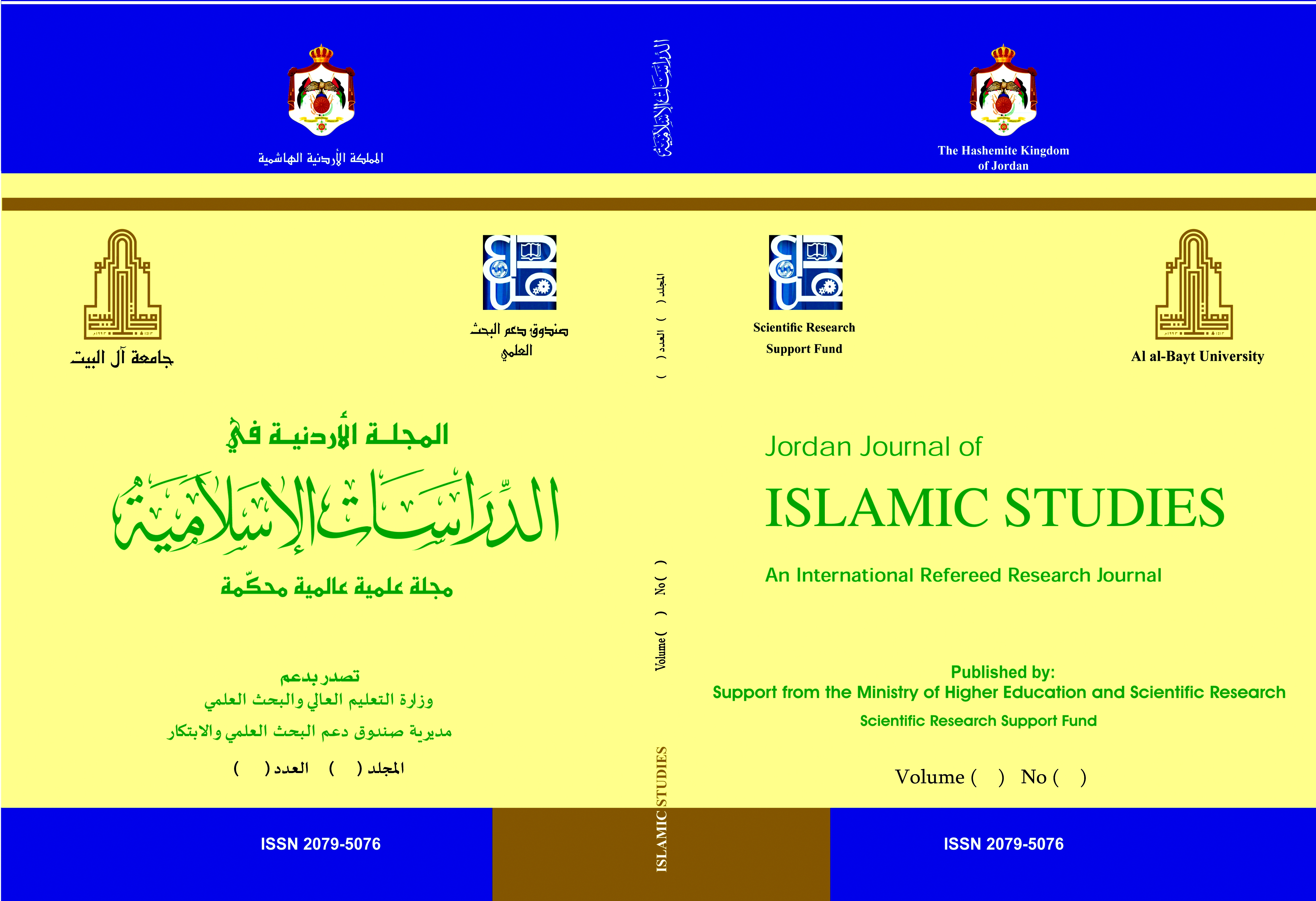Jordan Journal of Islamic Studies

Abstract
Irony is one of the text coherent factors and semantics researches’ subsets. It has made a balance in life and sees life and society from a philosophical aspect of view, therefore the reflection of this view returns to the literature.
Irony is not the language of soul, rather it is the language of wisdom and wit and thought function. This function is not emerged from poetry or affection.
Arabic literature enjoys irony in its texture. If anybody happens to dig out in the grounds of irony and rhetoric practices amongst great works of poetry, comes to know that it is the amendment language of poetry having the deepest affection over times and counts as poets’ arm.
This work studies and tries to accommodate irony in Towbe sura – as one of the suras of Quran enjoying the richest texts- following explaining its origins and theoretical principles by structural approach. This sura is chosen due to its long text besides Allah’s
caustic tone which is full of threats. Note that as contrast plays an important role in irony and text cohesion. This study tries to represent substantial and efficient role of contrast in Quranic texts, emphasizing the fact that there are no contradictions in the Holy Book, and finds irony in Quranic contrasts meticulously. Due to the significant effect that contrast has on the text, the most prominent achievement of the study is to:
1- Attain 12 verses of Towbe sura which contain ironical pictures. It is always referred to these verses besides some other verses from Al- dokhan and Ensheqaqsuras in various books.
2- Categorizing these verses according to their type and adding another section named contrast irony to the classification by Muhammad Al-abd, to whom the base work about irony refers.
It is important to know that every contrast does not contain irony.
Recommended Citation
Zari, Avrin and Qyasi, Nada
(2018)
"المفارقة ومفارقة التقابل في الوحدة الموضوعية في النصّ القرآني - دراسة تحليلية في سورة التوبة Irony between conflict and contrast in the holy Quran text (An analytic study of Touba Surah),"
Jordan Journal of Islamic Studies: Vol. 14:
Iss.
3, Article 17.
Available at:
https://digitalcommons.aaru.edu.jo/jois/vol14/iss3/17

